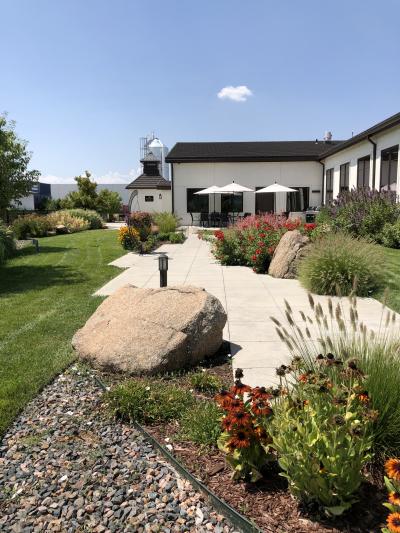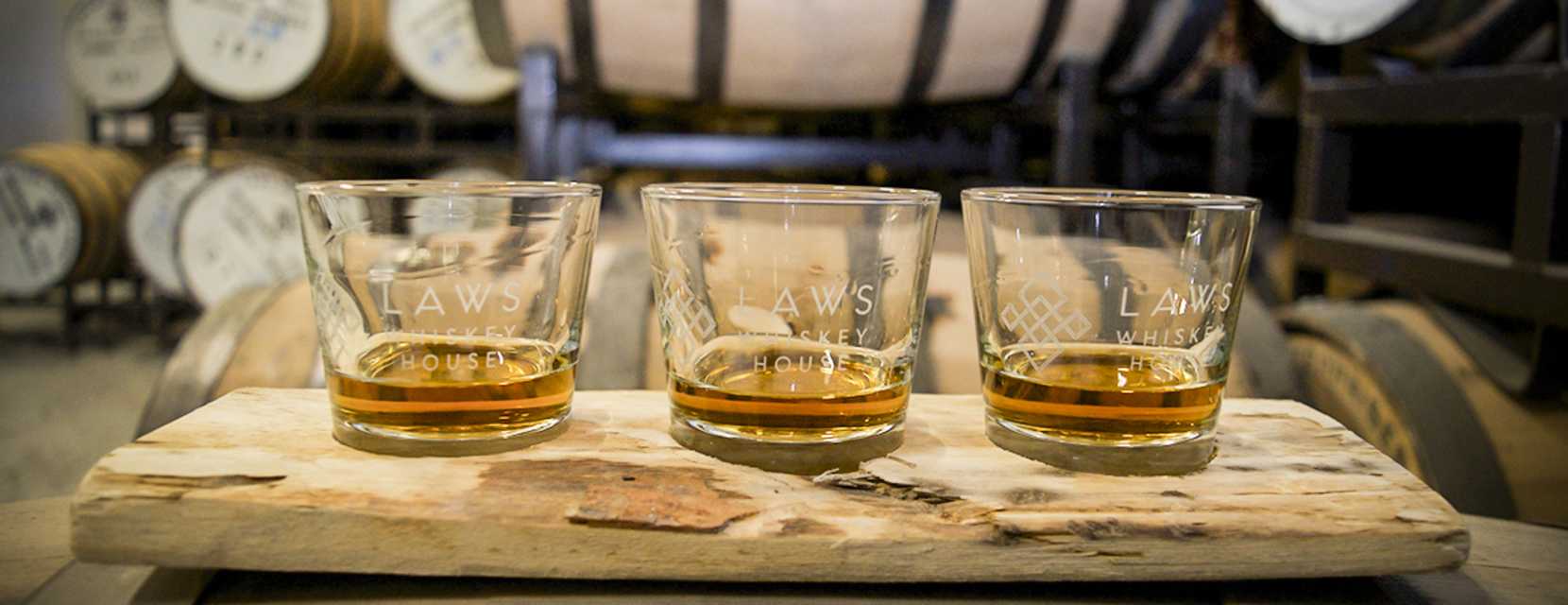Denver has emerged as one of the country’s top cities for craft spirits, with about a dozen distilleries bottling everything from absinthe to whiskey.
Turning grain and fruit into liquor is resource-intensive, and it also generates a notable stream of waste. Many operations in The Mile High City have emphasized sustainability, including Leopold Bros. in northeast Denver, where co-founder Scott Leopold’s background has informed the operation.
 “I’m an environmental engineer by trade, so the distillery was born out of a desire to create the world’s first environmentally sustainable distillery,” says Leopold. “The good news is that the industry as a whole has made great strides in the past 20 years. But there’s still a long way to go. A lot of the low-hanging fruit centers around water use in the beverage industry, just in general.”
“I’m an environmental engineer by trade, so the distillery was born out of a desire to create the world’s first environmentally sustainable distillery,” says Leopold. “The good news is that the industry as a whole has made great strides in the past 20 years. But there’s still a long way to go. A lot of the low-hanging fruit centers around water use in the beverage industry, just in general.”
While working as an engineer, he found that craft breweries typically generate 10 to 30 pints of wastewater for every pint of beer they make. The ratio is essentially the same for distilleries, says Leopold. “All the metrics really still apply to distillation because the very first half of everything you do is brewing. Your raw materials are different, the processes slightly different, but not by much.”
At Leopold Bros., wastewater output is a fraction of the industry norm.
“Through a bunch of different engineering initiatives, we reduced that to a little over 1.2 to one,” says Leopold.
Cleaning generates a lot of wastewater, he says, and Leopold Bros. leverages high pressure and vessel design to reduce that usage.
“We’re an all-organic facility, so we don’t really use chemical cleaning, which again reduces the amount of water that you have to use, because once you introduce chemicals, you have to rinse them out,” says Leopold.
Energy is another big area of emphasis at the distillery, and Leopold points to the facility’s passive solar design, LED lighting, hyper-efficient pumps and a water-cooled chilling system.
“The water goes through the top of the condenser to the bottom of the condenser back to the chiller for reuse, so you’re never dumping water down the sewer and you’re capturing and reusing that energy,” says Leopold. “It’s about 30 percent more energy-efficient.”
Waste products (spent grains and unwanted liquid byproducts of distillation) are sent to farms as livestock feed and used for cleaning, respectively.
“We’ve got a total of one residential trash can for the entire four-acre facility,” notes Leopold. “The vast majority of the trash that is in it is from people who come visit.”
Onsite malting, an industry rarity, allows for a local supply chain, adds Leopold. “We malt all of our own grains here onsite rather than purchasing them from Canada, Germany or England, which is where the majority of malt is derived,” he says. “The actual raw materials, the vast majority of them come from within 20 miles. Our farms for barley and rye or up in Longmont.”
In the Baker neighborhood, Denver Distillery is looking at novel ingredients to make spirits, including a Kernza whiskey that’s currently aging in barrels.
Unlike wheat or barley, Kernza is a perennial grain, notes Director of Operations Chris Anderson-Tarver. With annual grains, “It grows and produces fruit, we harvest the grain, it dies off and you do the cycle again,” he says. “Perennial agriculture is a very similar concept, except for the idea that you plant once and then the plant lives year after year.”
Kernza’s roots can reach more than 10 feet into the soil.
“It has access to a lot more water in that sense,” says Anderson-Tarver. “It also has access to a lot more nutrients.”
That means less fertilizer is needed, and the deep roots also help prevent soil erosion. Denver Distillery is sourcing Kernza from the U.S. Department of Agriculture, which is growing test crops of Kernza in Kansas, Minnesota and Colorado, says Anderson-Tarver. He expects to bottle the first batch of Kernza whiskey in 2024 or 2025, noting, “It really depends on what the barrel tells me.”
Like Leopold Bros., Denver Distillery emphasizes power efficiency and a local supply chain, and water consumption is top of mind.
“We built a system from day one that reuses our water over and over again,” says Anderson-Tarver.
A little more than a mile south at Laws Whiskey House in the Overland neighborhood, founder Al Laws is also focused on water.
“We’re trying to become as close to zero discharge as we can,” he says.
One initiative sends liquid waste from distillation to South Platte Renew, a wastewater treatment facility for Denver’s southern suburbs.
“It’s for denitrification,” explains Laws. “They put it in at a certain place in the process and it helps them reduce their use of chemicals.”
The distillery “takes it over by the tanker truck,” he adds. “We’re trying to figure out how to expand it right now to draw in some of our peers.”
He adds, “That’s a water project for us, really, but it’s also just a waste reduction thing. A lot of the stuff that we focus on even on our charity side is to do something with water, like protecting habitat or preserving wetlands.”
With a new tasting room under construction slated for opening in 2024, Laws also sees potential for solar power.
“The sun just travels straight across that building all day long. Our concrete gets like 115 degrees up front here in the summer.”
In the end, sustainability is about continuous improvement, he says. “We try to take incremental steps every year to do what we can to reduce waste and to be more efficient.”




